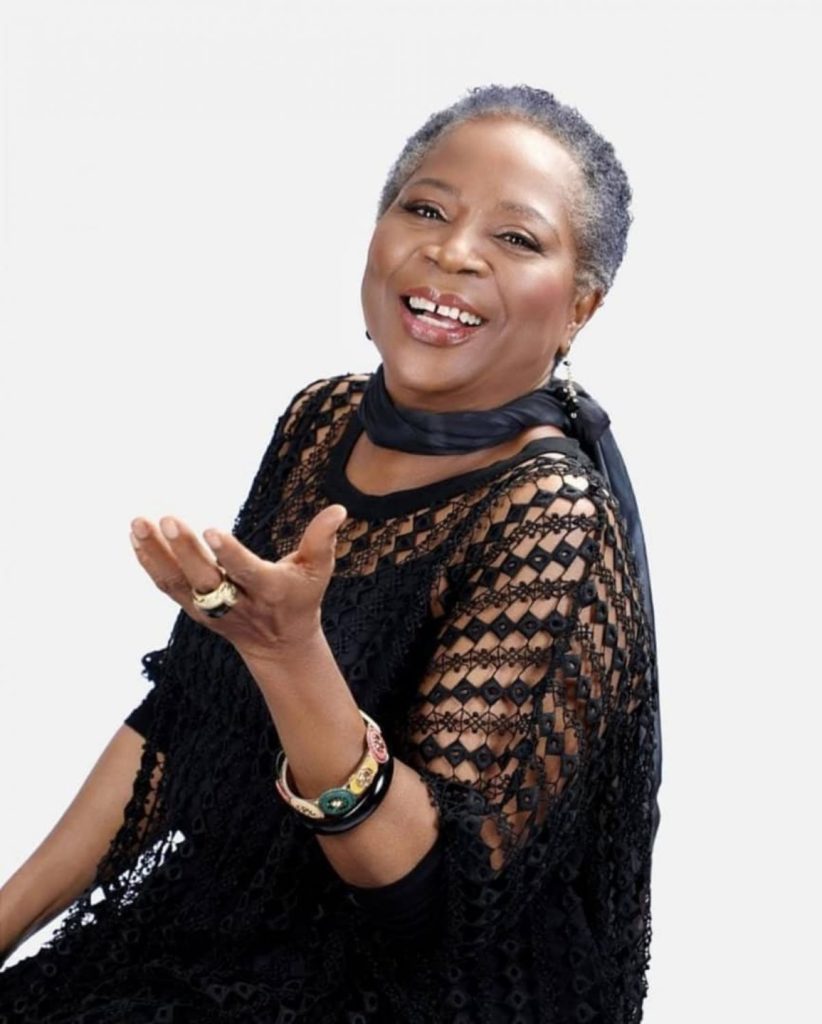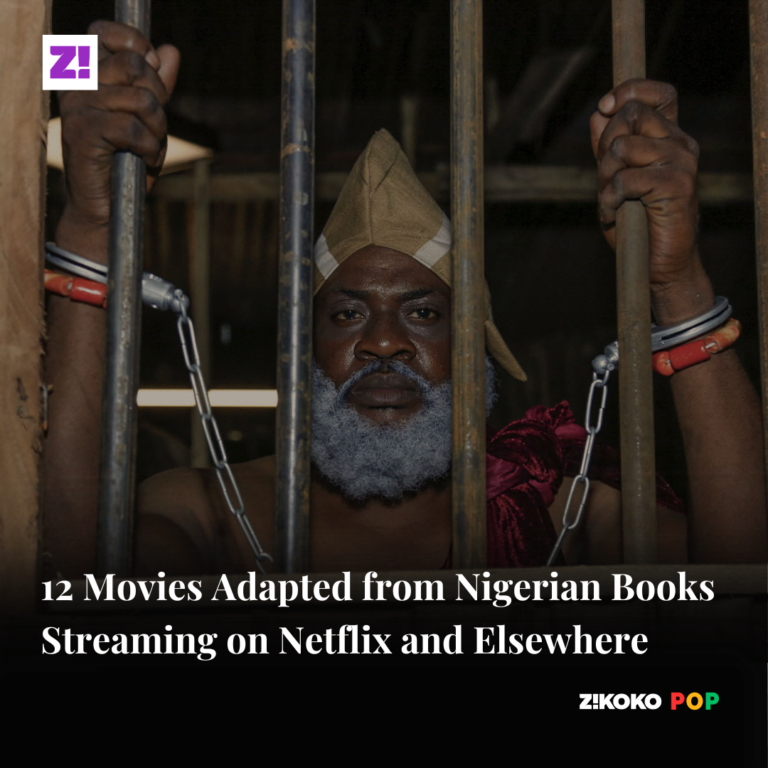My introduction to older artists and their music happens in two stages: a profile check on streaming platforms and a Google search of their unavailable songs. My search for Onyeka Onwenu’s collaborations with King Sunny Ade gave way to digging through her discography. Initially, I was there for the music, but the candour of her album arts fascinated me until they became one with the music.
On the cover art of “For the Love of You” (1982), her debut album, she was slender, and pale. Her hair was black and long. She was bejewelled. Her purple eyeshadow blended with her skin. She had an elegant poise and brightly faced the camera—she had something to look forward to—perhaps, a blossoming journalism career and decades of celebrity reverence. The album was the seed of her blossom. Her vocals pressed on vinyl, audio bites of funk, pop, soul, and flattering love. It was the boogie-down era. The then-American mainstream sound was impactful. But Onye Ga Agba Ewu, the standout track, in my opinion, is a good time reverie; the old Enugu town must have bopped to it. From it, Onyeka Onwenu, the singer-songwriter, ascended.
By the time her sophomore “Endless Life” came out in 1982, she was deep in her journalism bag at the Nigerian Television Authority (NTA), and her approach shifted toward human angst. Her appearance changed a bit. Her hair was cut short but full and shiny like she had all the time in the world with her comb and pomade. She gazed upward, musing and focused.
Unlike the multitudes of Nigerian Gen Xers and millennials who have memories tied to Onyeka’s hits like One Love, You and I, and Iyogoyo
The ‘80s in Nigeria was a bout of coup d’états, a failing economy, skyrocking of crime rate and consequently non-existent nightlife. The bleak optimism was carried almost entirely by the socially conscious music of that era in which Onyeka Onwenu was a star. The trend of socially conscious music trickled down into the following decades, bemoaning almost the sentiments of our heroes’ past. Little wonder, Onyeka’s ‘90s music releases focused on the need for an attitudinal change in Nigeria.
At the height of Onyeka Onwenu’s powers, the media called her the Elegant Stallion, promoted through the ranks of musical equestrians in what was the rise of digital Nigerian music. Her life evolved around light, camera and action. She was a multi-hyphenate artist acknowledged for making music, involvement in human and social activism, and TV appearances as an actor, journalist, and reality show judge. Passion led her.

In the late hours of July 29, 2024, Onyeka Onwenu graced a birthday party where she ended her music performance with a dazzle of her hit One Love (Keep Us Together). It was a high moment that soon became an unforgettable sad one. The songbird died doing music, a tragic slump after a performance and some gulps of water. She lived a full life and an indelible last moment—a moment many will consider poetic in reverence to her demise while she did what she loved dearly.
It’s hard not to think about Quincy Jones’ words: “Music and water will be the last things to leave our planet.” Onyeka Onwenu, the Elegant Stallion, has gone before these elements, and she now lives on through her tunes. Drink more water and live a full life, kids. It’s the Onyeka way.




